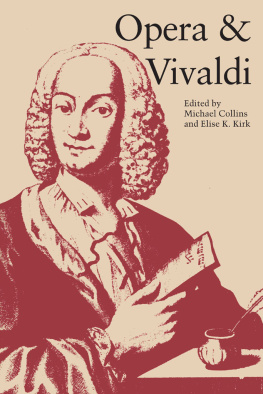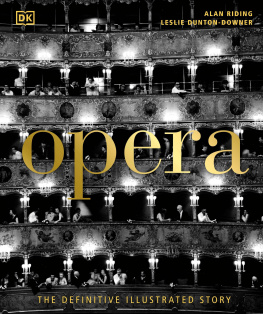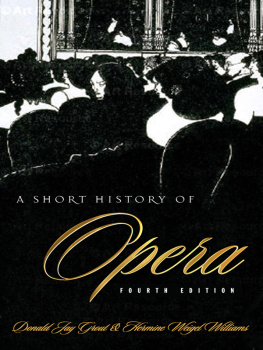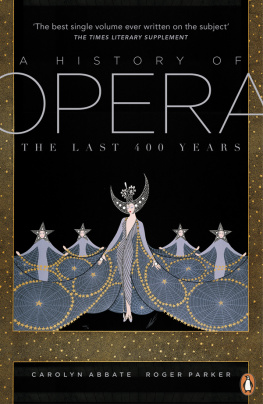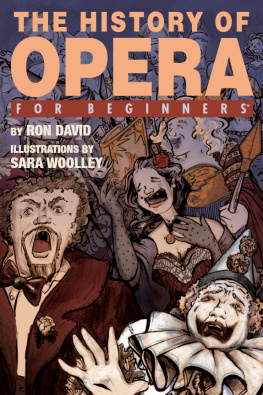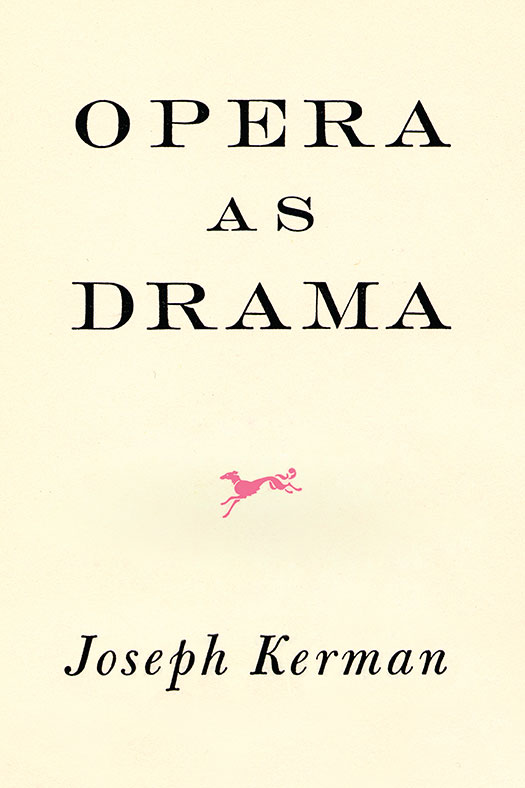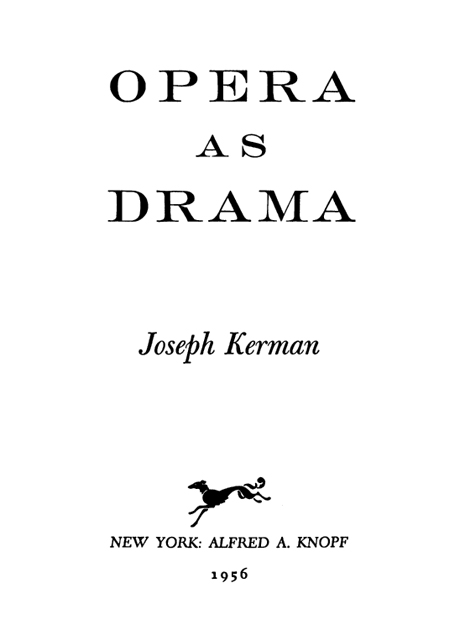L.C. catalog card number: 56-5790
Joseph Kerman, 1956

Copyright 1952, 1953, 1954, 1955, 1956 by Joseph Kerman. All rights reserved. No part of this book may be reproduced in any form without permission in writing from the publisher, except by a reviewer who may quote brief passages and reproduce not more than three illustrations in a review to be printed in a magazine or newspaper. Manufactured in the United States of America. Published simultaneously in Canada by McClelland and Stewart Limited.
eISBN: 978-0-307-83400-3
v3.1_r1
To my Mother and Father
Foreword
T O THE editors of The Hudson Review, Opera News, High Fidelity, and Partisan Review I am thankful for permission to reprint material that first appeared in their magazines, sometimes in rather different shape. My gratitude to the editors of Hudson goes much deeper, for they have encouraged or at least suffered me to develop my ideas and the form of my ideas for eight years now in their pages. This at a time when musical criticism finds little support, and lapses. And to one of those editors, William Arrowsmith, I owe a debt of good friendship for poring over chapters with relentless, sympathetic critical judgement matched only by that of my wife. Warm thanks also to Mrs. Althea Doyle and Roger Levenson; Herbert Weinstock; Charles C. Cushing, Seymour Shifrin, and Seth P. Ulman. A year ago the members of the Company of the Golden Hind in Berkeley taught me a good deal when I worked with them in an operatic production, and pleasantly delayed the early stages of this book.
J. K.
Berkeley
April 3, 1956
Contents
Introduction: Opera as Drama
I MAKE NO APOLOGY for the Wagnerian title. This book is far from Wagnerian, but the point of view it develops is really the basic one celebrated by Oper und Drama, that astonishing volume of a hundred years ago, Wagners chief theoretical statement and the important opera tract of his time. The view is trite, but always freshly suggestive: that opera is properly a musical form of drama, with its own individual dignity and force. Now, what Wagner said over and above this amounts to a very great deal, and gives his writing its particularity, and grows more and more insupportable as the years pass. What remains is his violent championship of the old tautology, opera as drama. Wagners operas and his writings forced the nineteenth century, and the twentieth, to approach opera with a new high-mindedness, which is waning only today. No one has ever pleaded the cause so efficiently.
The cause had many earlier champions, as well as worthy opponents. Since the days of the half-literary, half-musical academy that willed opera into being, musical drama has fascinated critics almost as steadily as composers; the speculative, satiric, and polemic literature is very extensive. And lively, thanks to the interest of Saint-Evremond, Addison, Diderot, Kierkegaard, Stendhal, Nietzsche, Shaw, and many intemperate lesser men. Today, as we look back over all the arguments and battles, perhaps the strongest impression is of a pervasive continuity. The examples change, but the central issues remain, constantly reinterpreted in the terms of the time. Is musical drama viable, and if so, how? Is Lully, or Gluck, or Wagner, or Verdi really doing with the form what we think it is capable of? The postulates and ideals, the dissatisfactions and controversies are renewed for every generation.
Musical drama is viable, and I believe that the present intellectual climate ought to be especially clement to the idea. We have certain new advantages; but the old disadvantage is still with usthe seeming contradiction between ideals and corrupt practice. Singers, audiences, and impresarios are irresponsible, as they always have been; artistic values are thoroughly confused by the jumble of good and bad that forms our current repertory. This makes a serious consideration of opera both difficult and rare. Sometimes ridicule can cut true, but we should do without that familiar indiscriminate satire on the genre as a whole, delightful or deserved as often this may appear. At present the greater need is for a reassertion of presumptive virtues. Addison and W. S. Gilbert, delightful writers, have had their bad effect on the course of opera in England. The instant appeal of their approach makes it all the more necessary to keep reformulating the humorless, idealistic position.
Today Wagners terms are impossible; none more so, perhaps. A contemporary view of opera does not owe its novelty primarily to the current situation in the United States, though this seems odd enough in the light of history: the abrupt enthusiasm for opera in the years since the Second World War, for opera that is mostly foreign and old, known mostly from records, broadcasts, and earnest half-amateur workshops. The novelty is due more fundamentally to the modern approach to an artistic tradition. Historical perspective has led on the one hand to a broader, more imaginative concept of the dramatic, and on the other, to a warmer respect for music of the past than was possible in earlier times. We see much more as dramatic; we see much more as musically expressive; we have the opportunity, the terms, for a quite new interpretation of the operatic problem and the operatic repertory.
In particular, the historicism which so much determined the old view of opera is unthinkable today. Wagner, who found Racine laughable, would never have given a thought to the operas of Monteverdi, even if he had been able to know them. Music, he was sure, was so simple in the seventeenth century that nothing sensible could be expected of opera. But today we are sure that this is not necessarily so. As the tradition is studied more carefully and more sympathetically, it seems less and less to fall in with any dialectical march to a Gesamtkunstwerk of a hundred years ago, to the Art-Work of the Future. Composers of the past left, not a series of immature experiments, but a number of solutions, each distinct, and each with the potentiality of artistic success within its own limitations. This way of looking at history is no less benign to Wagner in the nineteenth century than to Monteverdi in the seventeenth. Wagner might have cursed it as flabby relativism, but to us it represents a breadth of vision as inevitable as it is hard to maintain. And it does allow us to encompass more.
Flabby relativism is certainly the danger, as anyone ought to know who buys an opera season ticket. Under the tacit assumption that everything is all right in its own terms, extremes of beauty and triviality are regularly placed together. The extremes, I think, are even more grating than with other contemporary arts: in our opera houses, art and Kitsch alternate night after night, with the same performers and the same audience, to the same applause, and with the same critical sanction. Confusion about the worth of opera is bound to exist when no distinction is drawn publicly between works like Orfeo and The Magic Flute on the one hand, and like Salome and Turandot on the other. As for operatic criticismbut unintellectuality is another odd feature of the current American vogue for opera. Talk is never about meaning, but about peripheral topics like opera in English, modern production methods, and television techniques; all without an idea of what opera can or should be, and what is in the first place worth translating, producing, and televising. This may be understandable in our first flush of enthusiasm of discovery, but it is hard to think that all our operatic activity can proceed much longer without standards.


